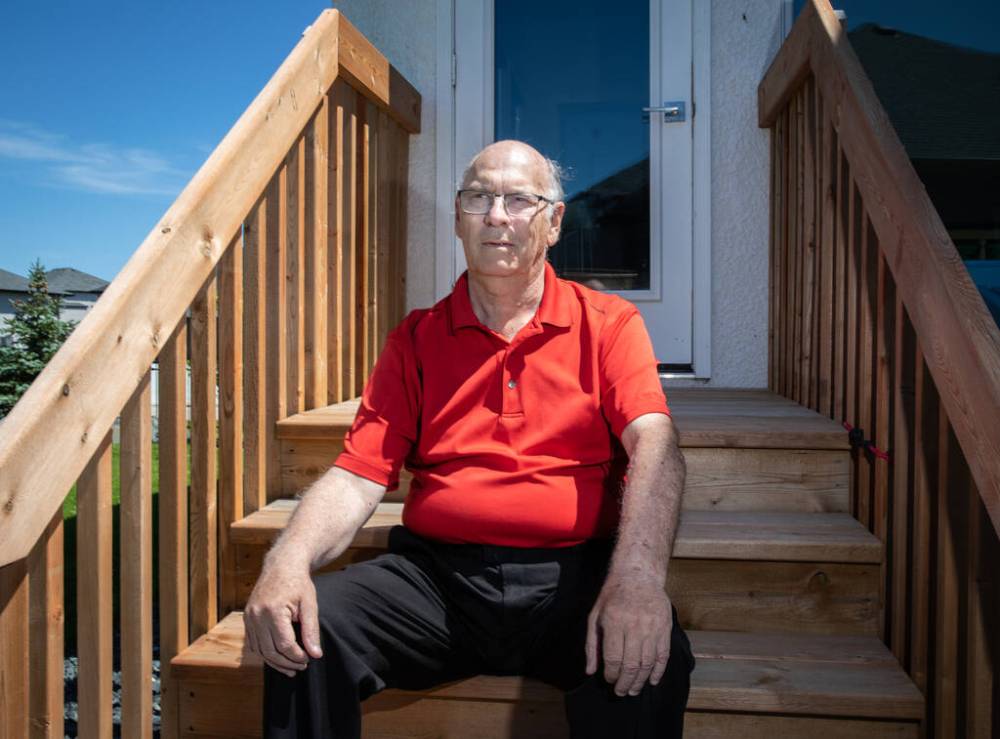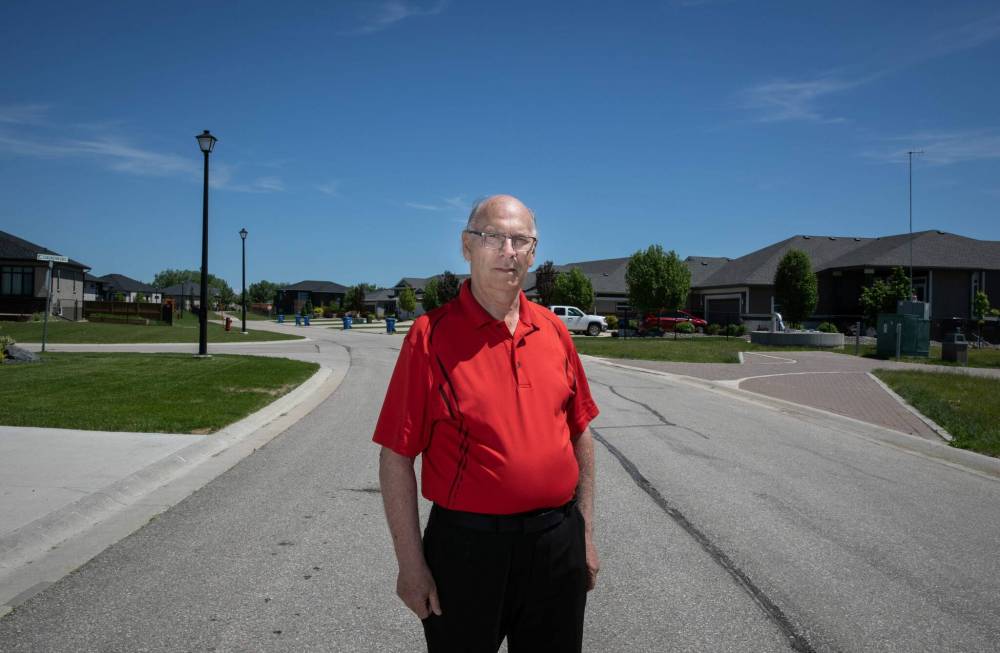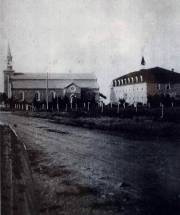Province, RCMP debate fate of auxiliary program
Read this article for free:
or
Already have an account? Log in here »
To continue reading, please subscribe:
Monthly Digital Subscription
$0 for the first 4 weeks*
- Enjoy unlimited reading on winnipegfreepress.com
- Read the E-Edition, our digital replica newspaper
- Access News Break, our award-winning app
- Play interactive puzzles
*No charge for 4 weeks then price increases to the regular rate of $19.00 plus GST every four weeks. Offer available to new and qualified returning subscribers only. Cancel any time.
Monthly Digital Subscription
$4.75/week*
- Enjoy unlimited reading on winnipegfreepress.com
- Read the E-Edition, our digital replica newspaper
- Access News Break, our award-winning app
- Play interactive puzzles
*Billed as $19 plus GST every four weeks. Cancel any time.
To continue reading, please subscribe:
Add Free Press access to your Brandon Sun subscription for only an additional
$1 for the first 4 weeks*
*Your next subscription payment will increase by $1.00 and you will be charged $16.99 plus GST for four weeks. After four weeks, your payment will increase to $23.99 plus GST every four weeks.
Read unlimited articles for free today:
or
Already have an account? Log in here »
Hey there, time traveller!
This article was published 21/06/2022 (1265 days ago), so information in it may no longer be current.
Political red tape has hamstrung RCMP community volunteer patrols in Manitoba, frustrating would-be participants and reducing support for rural police officers.
The auxiliary program (formerly called the auxiliary constable program) enlists the help of trained volunteers to assist Mounties in traffic control, crime prevention and community outreach.
Due to a contractual dispute, Manitoba’s auxiliary volunteers have been on hold since 2016. They will not return until the national police force and the province reach an agreement, an RCMP spokesperson told the Free Press.
The RCMP has forwarded its terms to the province, but negotiations have stalled due to a dispute over which party is liable for auxiliaries’ safety, the spokesperson said.
Justice Minister Kelvin Goertzen commented on the proceedings June 16, during an unrelated news conference.
“I think we understand that it’s a program that’s shown value in different places and different ways, but not a lot I can say while it’s sort of ongoing,” Goertzen said.

“I’ve certainly heard from individuals who’ve either been through the program or have been benefited from the program, who would say that it’s a valuable program. Everything becomes a question of: is this the most valuable thing that you can do given the resources that you have?”
The National Police Federation, a labour relations organization representing around 20,000 RCMP members, said it is asking every level of government to provide support for the RCMP, which has struggled to recruit and retain members in recent years.
“Our members are asked to do more with less,” said Bobby Baker, director of the NPF Prairie region. “A decline in recruitment applications, increased workloads, mental health impacts… Staff shortages are an issue that all police services across Canada, including RCMP in Manitoba, are dealing with.”
“A decline in recruitment applications, increased workloads, mental health impacts… Staff shortages are an issue that all police services across Canada, including RCMP in Manitoba, are dealing with.” – Bobby Baker
The auxiliary program began in 1963, and was a staple of recruitment and community policing until the RCMP placed it under review after a 2015 shooting in St. Albert, Alta., killed Const. David Wynn and wounded Aux. Const. Derek Bond.
The incident led to the end of ride-along practices and firearms training for auxiliaries who, despite not carrying guns, were trained to be familiar with them.
Between 2016 and 2019, the RCMP conducted a national evaluation of the program, eventually publishing a summary document in December 2020 that identified issues, including inadequate training opportunities, a lack of insurance coverage for auxiliaries, and ineffective communication between RCMP and volunteers.
It also highlighted benefits, such as auxiliaries’ ability to address the challenge of limited RCMP presence in rural communities where fewer officers are responsible for larger geographic areas.
When the review began, Canada’s auxiliary force was some 1,500 strong, but the number of volunteers has since dropped by nearly 50 per cent across the country.
Ultimately, the RCMP restructured the program, implementing changes to responsibilities and uniforms, developing national training standards and removing the “constable” designation.
In an email statement, RCMP national headquarters confirmed there are auxiliary volunteers currently active in Newfoundland and Labrador, New Brunswick, and Nova Scotia, but could not comment on when the program might resume in Manitoba.
“Having an auxiliary program is up to each division,” it said.
The province also provided an email statement to the Free Press, but declined to comment on negotiations or disclose how much it has previously spent on auxiliaries.
The summary document estimated the cost of training and outfitting each volunteer at up to $3,180. In 2016, Manitoba had 54 auxiliaries, suggesting it may have cost the province roughly $170,000 to establish its volunteer force.
A 1999 provincial news release announced a $500,000 commitment to expand the program. That money came in addition to the $50,000 the province had invested annually since 1992.
“As a volunteer, it just makes me angry… I want to help, and I’ve been helping for over two years at my own cost… It’s like operating with your hands tied behind your back,” said Kerry McInnes, an Oak Bluff resident who hoped to become an auxiliary.

McInnes, 69, was formerly a member of the local branch of Citizens on Patrol Program, a resident-led neighbourhood watch group active in 49 Manitoba communities.
He began volunteering with COPP in 2020, but left in August 2021, feeling the program was ineffective because members preferred to patrol during the day — not at night when crimes occur.
McInnes hoped the auxiliary program would be more impactful because of the specialized training and close relationship between auxiliaries and RCMP officers.
He applied in December, but never heard back from the RCMP.
“I’m so frustrated,” McInnes said. “I thought I was in… and after six months, I never heard a word from them… They just left me in the lurch.”
“I’m so frustrated… I thought I was in… and after six months, I never heard a word from them… They just left me in the lurch.” – Kerry McInnes
The cost of training and outfitting auxiliaries should not discourage the province from coming to an agreement with the RCMP, McInnes said, adding he believes communities would be willing to fundraise money to cover the expense.
“The first responders, these guys who are picking up bodies on the side of the road, are left holding the bag. That’s why I wanted to help them out,” he said. “I really applaud their job and the ability they have. They are really my heroes.”
— with files from Erik Pindera
tyler.searle@freepress.mb.ca








